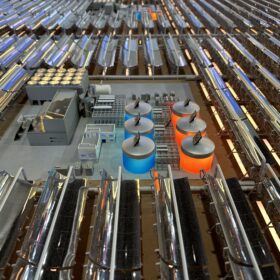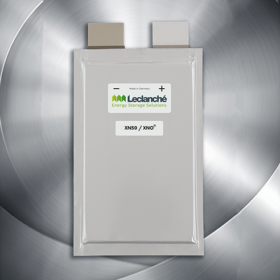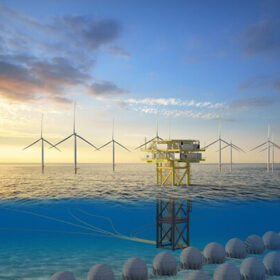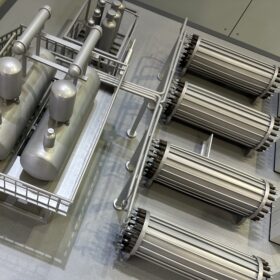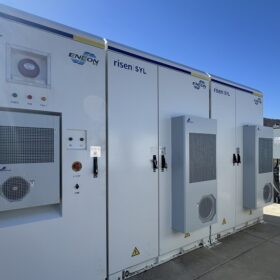Brazilian islands to have 85% solar and battery storage by 2027
Replacing diesel, the Noronha Verde project will be carried out by Neoenergia with an investment of BRL 300 million ($52.1 million).
Concentrated solar power, a much cheaper solution than batteries for energy storage
By offering cheap energy storage, concentrating solar power has a huge potential. However, it requires international standards to become a competitive market proposition.
New fire protection guidelines for installing batteries in Sweden
Svensk Solenergi has shared new guidelines for installing stationary battery storage systems. Its publication comes as the number of battery installations in Sweden, across both the residential and larger-scale markets, is accelerating.
Leclanché releases battery cell with niobium-based anode material
The Swiss manufacturer said the cell was developed in partnership with Echion Technologies, which supplied the niobium-based active anode material. It has greater energy density and faster charging compared to LTO technologies.
Subsea pumped storage tech secures funding from US, German governments
A cross-Atlantic subsea pumped storage collaboration will seek to overcome the land-based challenges plaguing traditional pumped hydro storage technology.
The Hydrogen Stream: UK to fund 11 green hydrogen projects
The UK government has confirmed new hydrogen plans, while RWE says it has secured construction and environmental permits to build a 100 MW electrolyzer in the Netherlands.
Three Gorges unveils 16.5 GW renewable energy plan in China
Three Gorges has revealed plans for a 16.5 GW renewable energy project in China’s Taklamakan Desert, which includes 8.5 GW of solar power, 4 GW of wind, 3.96 GW from six ultra-supercritical coal-fired units, and 5 GWh of electrochemical energy storage.
Sunly starts construction of three solar parks in Latvia
Estonian renewable energy company Sunly is building three solar parks in Latvia with a cumulative capacity of 225 MW. The projects are being developed as hybrid parks, combining solar with wind and battery energy storage.
Battery storage drives revenue for solar arrays in high-demand areas
One to four hours of battery storage for a solar power facility can significantly increase site revenue in areas with high population density or abundant solar energy. However, the added value diminishes with storage capacities exceeding four hours.
Solid-state batteries enter pilot production, costs expected to drastically drop
The latest findings from Taipei-based intelligence provider TrendForce show that all-solid-state battery production volumes could have GWh levels by 2027. The rapid expansion will lead to cell price declines, reaching CNY 0.6-0.7/Wh ($0,084-$0,098) level by 2035.

